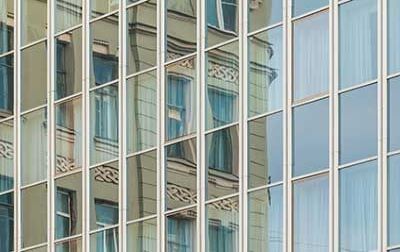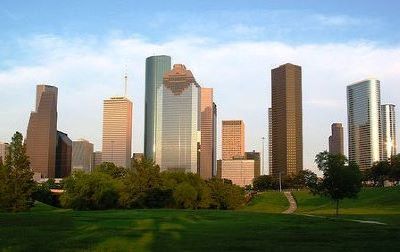Bird-Safe Building Design
The Threat of Collisions
According to the American Bird Conservancy, up to a billion birds die in the U.S. each year due to glass collisions. Houston Audubon encourages bird-safe design as a way to address the significant threat of collisions to resident and migratory birds.
There are two main types of building-related threats to birds:
- Those that occur during the night during migration
Houston Audubon launched Lights Out for Birds for when high predicted migration through our region coincides with a weather front. We invite you to learn more about nocturnal migration and how the simple act of turning off lights can make a big difference for birds.
- Those that occur during the day throughout the year
During the day, birds collide with windows and buildings due to three key factors:
Reflection
Transparency
Site placement
Help at Home
Budget-friendly and effective options exist to help prevent bird collisions at home. Bird tape can be placed on windows to prevent collisions. Various other tapes and materials can be purchased and installed quickly.
with Heidi Trudell
Bird tape options with prices
Zen Wind Design. A video for DIY birdsavers is on their website.
Bird-Friendly Building Design
Most bird collisions occur on the first three stories of buildings. This makes sense because during the day, birds are foraging in the local landscape of grasses, water features, shrubs, and trees. Bird-safe principles are ideally integrated into any design plan, but numerous retro-fit options also exist. Fritted glass and visually appealing screens are two of our favorite options.
For more information on how to incorporate Bird-Safe Design in existing or new building structures, see the links below.
This Guide was created specifically for Houston. Architectural solutions are addressed on pages 24-25.
The comprehensive resource was created by the American Bird Conservancy to address a range of threats and solutions with compelling photographic examples.
- Other Cities Leading the Way
Cities such as San Francisco, Toronto, and Chicago are making strides with bird-safe ordinances.
If you are taking steps toward Bird-Safe Design, we would like to hear about it. Please contact gdurham@houstonaudubon.org.
